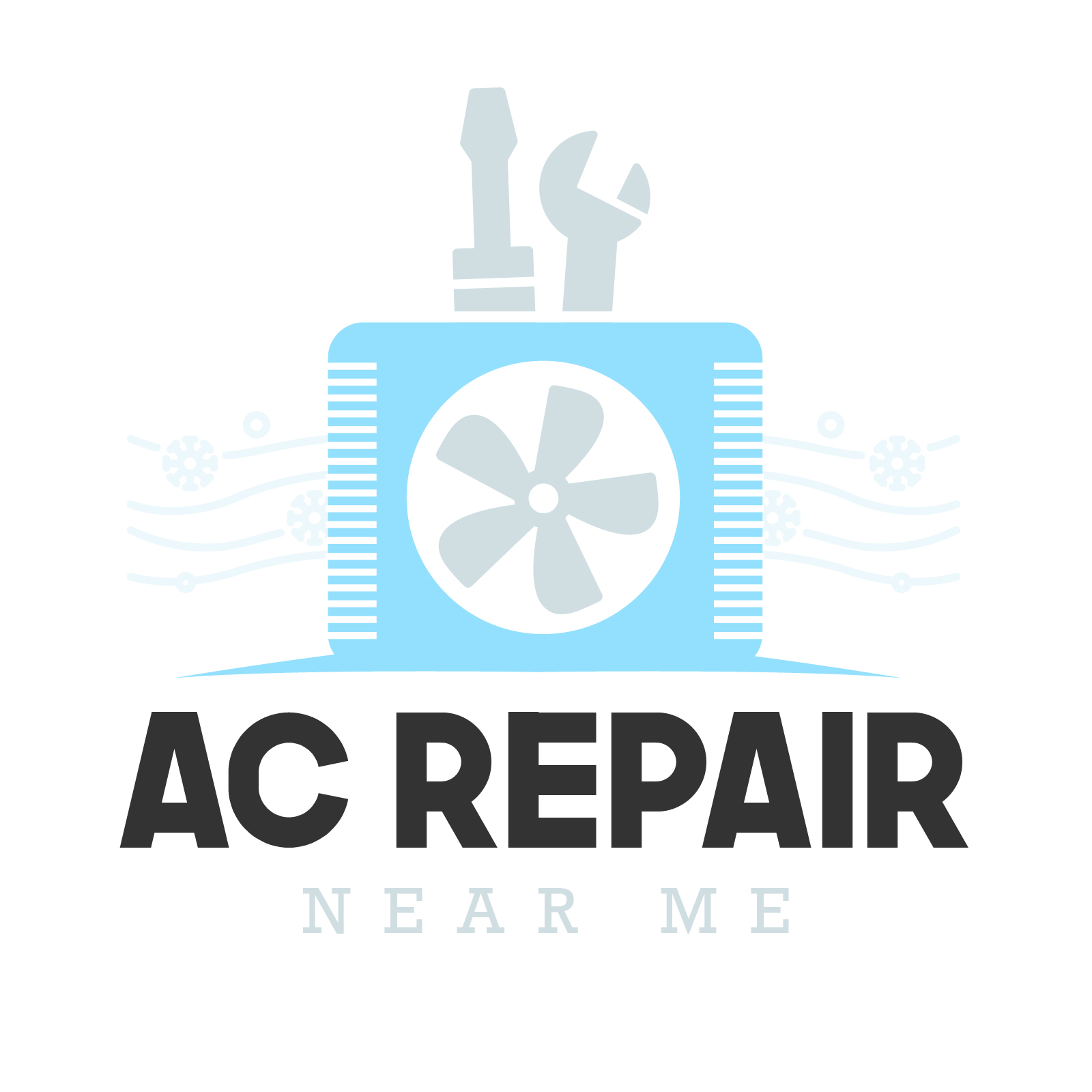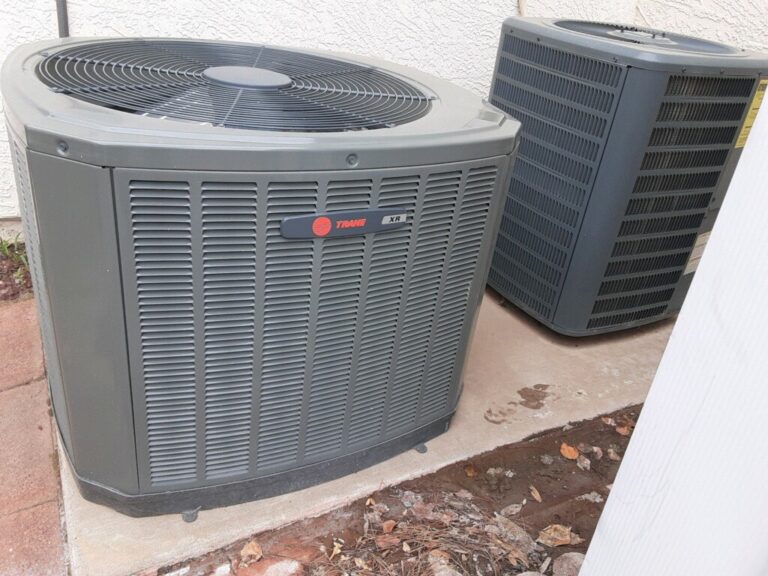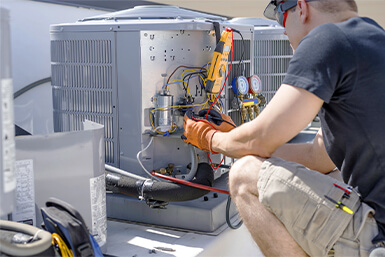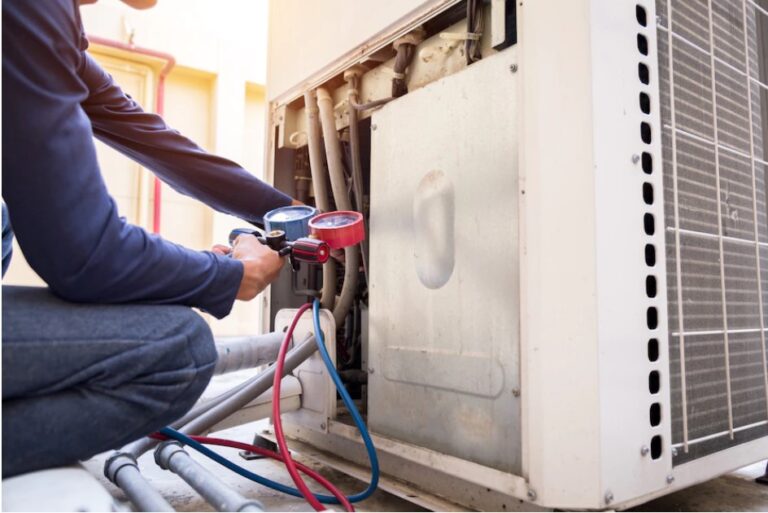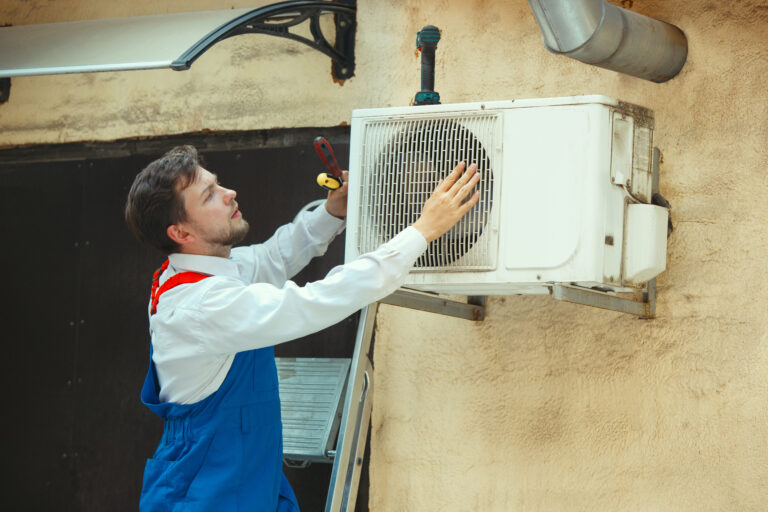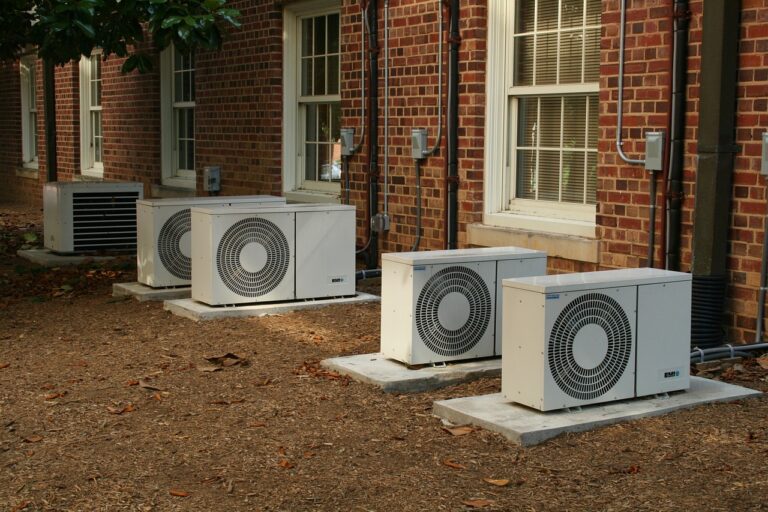Noisy AC Unit? Here’s How to Quiet Things Down Fast
A peaceful home environment can be quickly disrupted by a loud air conditioner, causing stress and discomfort for homeowners.
Modern air conditioning systems are designed to operate quietly, so unusual or loud noises typically indicate underlying problems that need attention.
Understanding the different sounds your air conditioner makes is the first step in effective troubleshooting and resolving the issue.
This comprehensive guide will help you identify common AC noises, understand their causes, and learn practical solutions to quiet your system.
Key Takeaways
- Identify the type of noise your air conditioner is making to diagnose the issue.
- Understand the common causes of air conditioner noises.
- Learn DIY fixes for common air conditioner problems.
- Know when to call a professional for air conditioner repair.
- Prevent more serious damage to your air conditioning system.
Understanding Why Your AC Unit Makes Noise
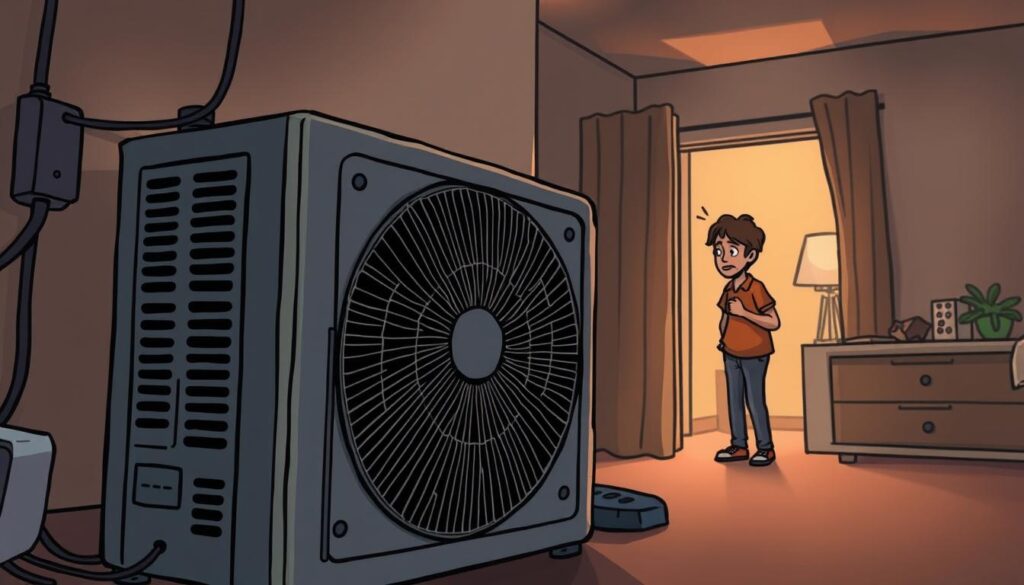
Noise from your AC unit can be a sign of aproblemthat needs to be addressed to prevent furtherdamage. When your air conditioner starts making unusual noises, it’s essential to understand the underlying causes to maintain its performance and longevity.
Normal vs. Problematic AC Sounds
Not all sounds from your air conditioner are cause for concern. However, distinguishing between normal and problematic noises is crucial. For instance, a gentle humming noise is typically normal, while loud banging or screeching sounds are not. The pitch, volume, and pattern of the sounds can help identify which component is failing or needs maintenance. For example, a faultyfancan produce unusual noises.
How Noise Indicates Underlying Issues
Different types of noises correspond to specific mechanical or electricalissueswithin your AC system. Sudden changes in your AC’s sound profile often indicate developingproblemsthat require prompt attention. Addressing noisesignsearly can prevent more extensivedamageto your system and extend its operational lifespan. As noted in our guide onhow to prevent and handleserious AC repair, understanding these noises is key to maintaining your air conditioning unit.
- Changes in the pitch or volume of the noise
- Loud or unusual sounds that persist
- Noises that occur at specific times or under certain conditions
By paying attention to thesesignsand addressing them promptly, you can help ensure the longevity of your air conditioning unit and prevent costly repairs down the line.
Identifying Common AC Noises and Their Causes
Unusual sounds coming from your AC unit can be more than just a nuisance; they often indicate underlying issues that need attention. Air conditioners can produce a variety of noises, and understanding the type of noise is crucial to diagnosing the problem.
Banging and Clanking Sounds
Banging and clanking sounds are often related to loose or broken parts within your AC unit. These noises can be caused by a loose compressor or other internal components that have become dislodged. If you hear these sounds, it’s essential to turn off your AC to prevent further damage.
Screeching and Squealing Noises
Screeching and squealing noises typically indicate problems with the fan motor or other moving parts. These high-pitched sounds can be due to worn-out belts or bearings that need lubrication or replacement. Ignoring these noises can lead to more severe issues with your AC.
Buzzing and Humming Sounds
Buzzing and humming sounds are often associated with electrical problems or a malfunctioning compressor. These noises can be a sign of a serious issue that requires professional attention. A compressor problem, for instance, can lead to significant repair costs if not addressed promptly.
Hissing and Bubbling Noises
Hissing and bubbling noises usually indicate a refrigerant leak or issues with the AC’s internal valves. These sounds suggest that there’s a problem with the refrigerant circulation, which can affect the overall performance of your AC. It’s crucial to have these issues inspected by a professional to avoid further damage.
Rattling, Clicking, and Grinding Sounds
Rattling noises often indicate loose components or debris trapped in the system, particularly in the outdoor condenser unit. Clicking sounds that occur occasionally during startup and shutdown are normal, but persistent clicking may indicate thermostat problems or failing control boards. Grinding noises are serious warning signs that typically indicate problems with the fan motor bearings. Regular maintenance can help prevent these noises and ensure your AC runs smoothly.
By understanding the different types of sounds your AC can make and their potential causes, you can take the first step towards diagnosing and fixing the problem. Regular maintenance and inspections can help prevent many of these issues, ensuring your air conditioner operates efficiently and effectively.
Noisy AC Unit Troubleshooting: DIY Solutions
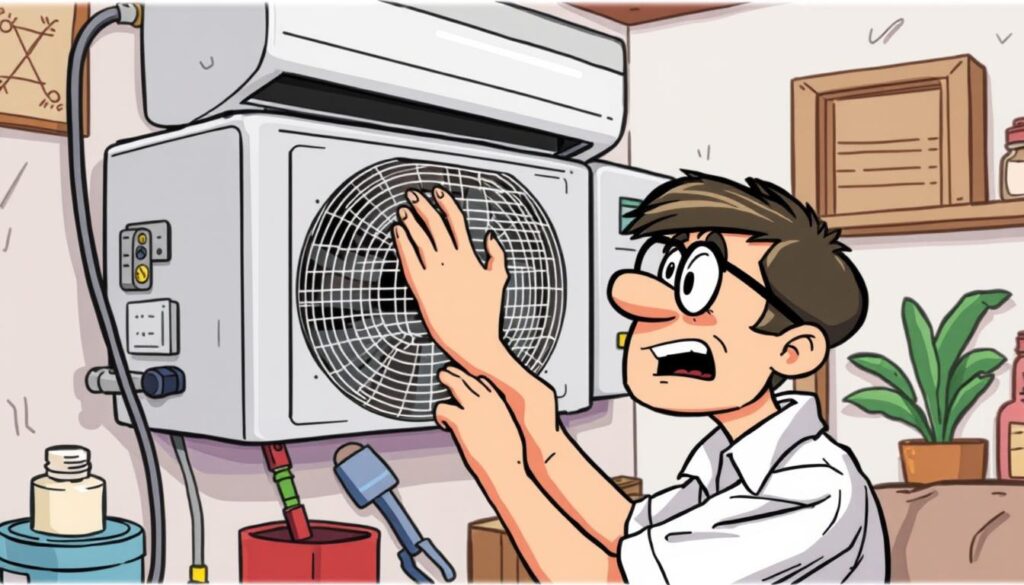
Dealing with a noisy AC unit can be frustrating, but fortunately, many common issues can be resolved with simple DIY troubleshooting. Before diving into complex repairs, it’s essential to identify the source of the noise and apply the appropriate fix.
Cleaning Your AC Unit
A dirty AC unit can cause unnecessary noise due to obstructed airflow or increased strain on the system. Regular cleaning can help mitigate these issues.
Removing Debris and Obstructions
Start by clearing any debris around the outdoor unit. Leaves, branches, and dirt can obstruct airflow and cause the compressor to work harder, leading to increased noise.
Cleaning Condenser Coils
Dirty condenser coils can also cause the AC unit to produce more noise than usual. Use a garden hose to gently clean the coils, ensuring not to bend the fins.
Tightening Loose Components
Loose parts can cause rattling or clanking noises. Checking and tightening these components can often resolve the issue.
Securing Fan Blades
Inspect the fan blades for any signs of damage or looseness. Tightening the blades can eliminate a buzzing noise or other unusual sounds coming from the fan.
Fastening Loose Screws and Bolts
Check the entire unit for loose screws and bolts. Tightening these can prevent rattling and other noises caused by loose components, especially around the motor.
Checking and Replacing Air Filters
A dirty or clogged air filter can cause the AC unit to work harder, potentially leading to increased noise. Regularly checking and replacing the air filters can help maintain a quiet and efficient system.
Lubricating Moving Parts
Proper lubrication reduces friction between moving parts, decreasing noise and extending component life. Not all modern AC units require lubrication, as many newer models have sealed bearings or motors. However, for those that do, it’s crucial to follow the manufacturer’s recommendations.
Lubrication is particularly important for components like fan motors and bearings. Using the correct type of lubricant and applying it sparingly can prevent over-lubrication, which can attract dust and cause additional problems.
Some common parts that may require lubrication include fan motors, bearings, and in some cases, compressor components. Always consult your owner’s manual to determine the correct lubricant and lubrication schedule.
When to Call a Professional HVAC Technician
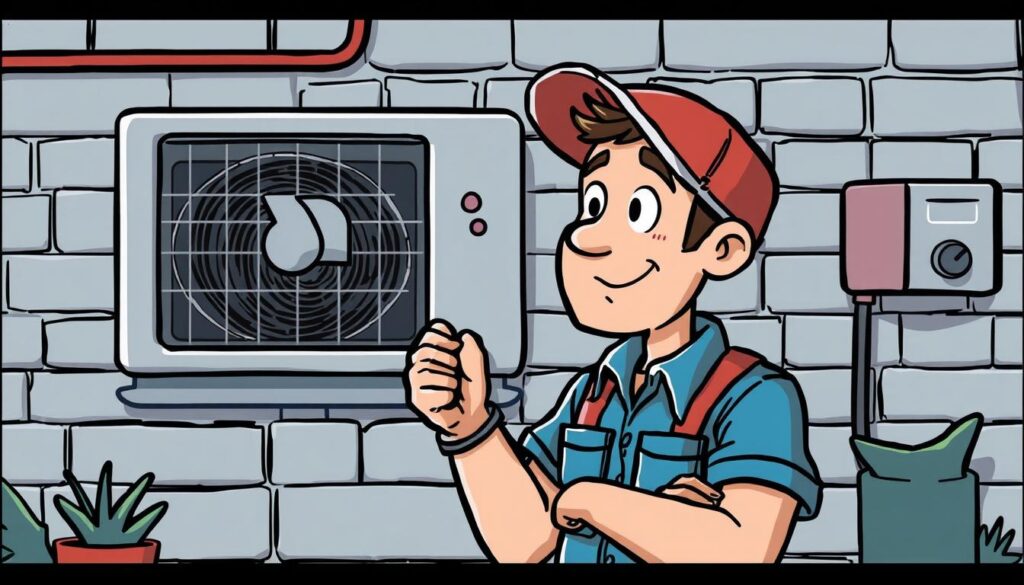
Recognizing the signs that indicate a need for professional HVAC repair can save you from more extensive damage and costly repairs. If you notice a loud and disruptive sound from your air conditioner, this is a clear indicator of a moderate to severe issue.
Certain sounds and symptoms indicate serious system damage that requires immediate professional attention. For instance, loud banging or metal-on-metal grinding noises, burning smells, smoke, complete system failure, or repeated cycling on and off are signs of major problems.
Electrical Issues Requiring Expert Attention
Electrical issues with your air conditioner, such as buzzing sounds or faulty wiring, require expert attention. These problems can lead to safety hazards if not addressed promptly. A professional HVAC technician can diagnose and repair electrical issues, ensuring your system operates safely and efficiently.
Refrigerant Leaks and Compressor Problems
Refrigerant leaks and compressor problems are serious issues that need professional repair. Refrigerant leaks can cause your AC to lose its cooling efficiency, while compressor failures can lead to complete system breakdowns. If you suspect a refrigerant leak or compressor issue, it’s crucial to contact a professional HVAC technician.
Motor and Fan Replacement
If your air conditioner’s motor or fan is malfunctioning, it may be necessary to replace these parts. A professional HVAC technician can assess the condition of your system’s motor and fan, determining whether repair or replacement is the best course of action.
Signs of Serious System Damage
Continuing to operate a severely damaged system can lead to more extensive damage, higher repair costs, or complete system failure. If you notice any signs of serious system damage, such as unusual noises or sounds, it’s essential to seek professional help immediately. For more information on identifying AC problems, visit signs that there is a problem with your.
Preventing Future AC Noise Problems
Preventing future AC noise problems requires a combination of professional maintenance and simple DIY tasks. To keep your air conditioner running quietly and efficiently, it’s crucial to have professional air conditioner maintenance performed annually, preferably in the spring. During an AC maintenance tune-up, an HVAC technician can spot potential concerns, preventing them from escalating into loud noises and costly repairs.Regular maintenance is essentialto prevent AC noise problems and extend the life of your system. By establishing a preventative maintenance schedule, you can catch small issues before they develop into noisy, expensive problems. Simple DIY tasks, such as changing the air filter regularly and removing debris around the outdoor AC condenser, also play a significant role in maintaining a quiet air conditioning system.
Proper installation and sizing of AC equipment from the beginning helps prevent many noise issues throughout the system’s life. Additionally, energy-efficient operation not only saves money but typically results in quieter operation as the system doesn’t need to work as hard to maintain comfortable temperatures.
By taking proactive steps, you can significantly reduce the likelihood of your air conditioner making loud noises, ensuring a more comfortable home environment.
